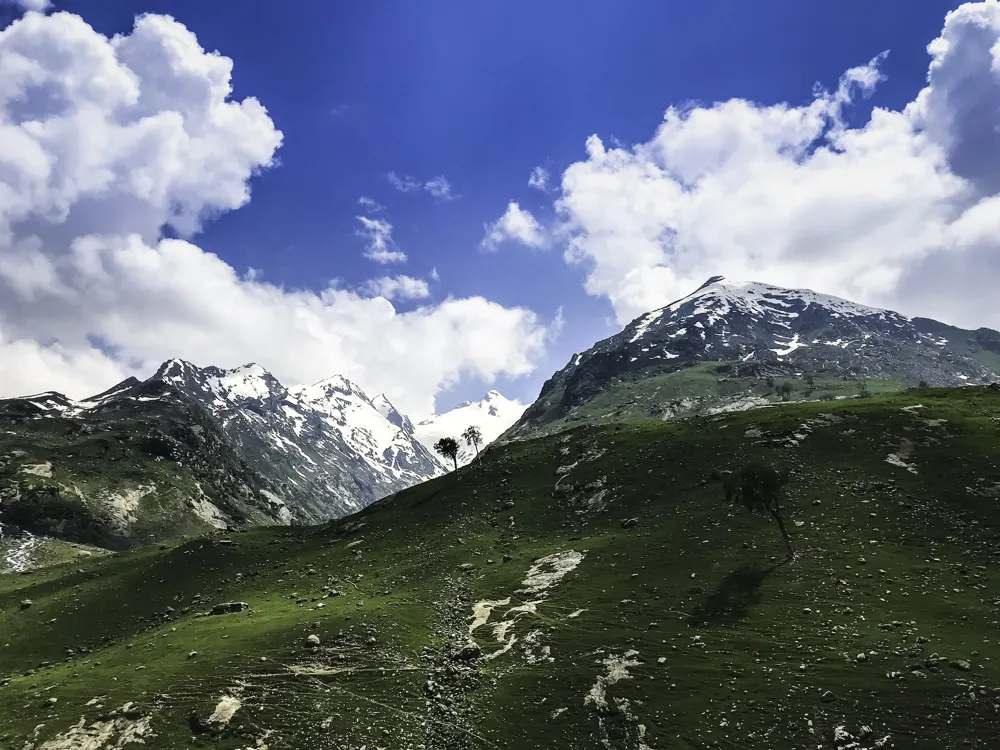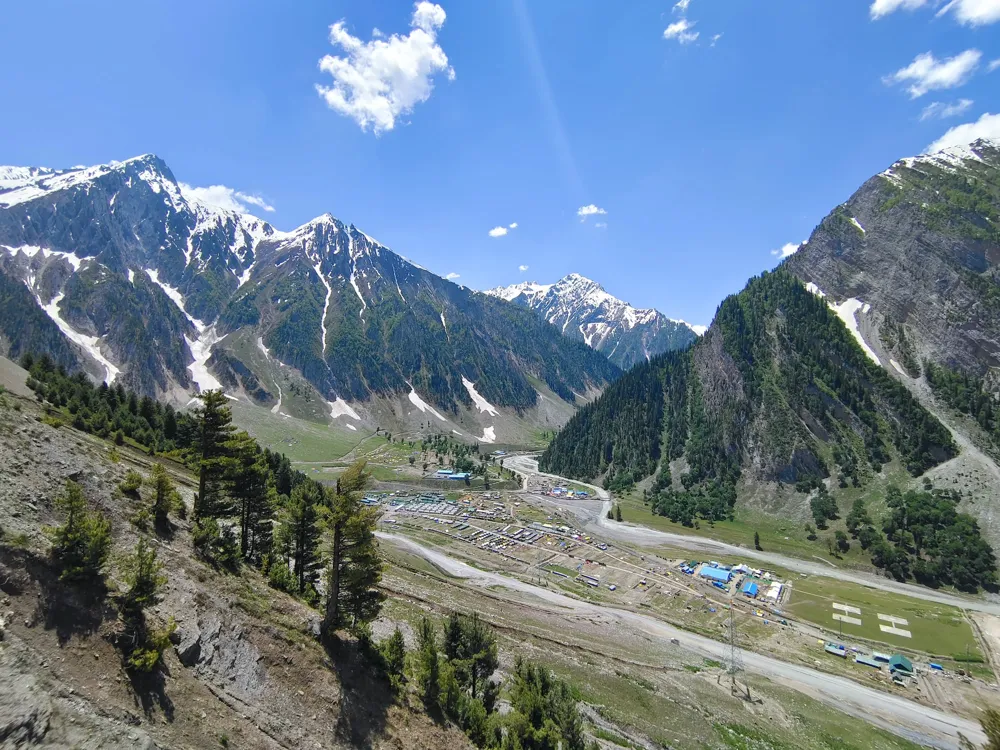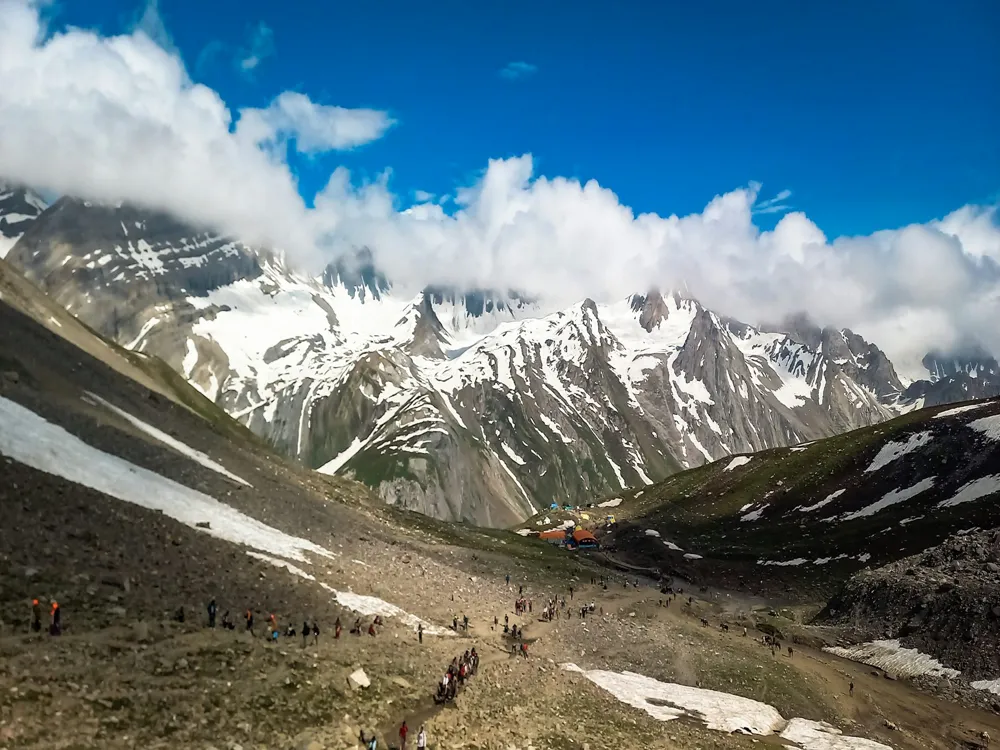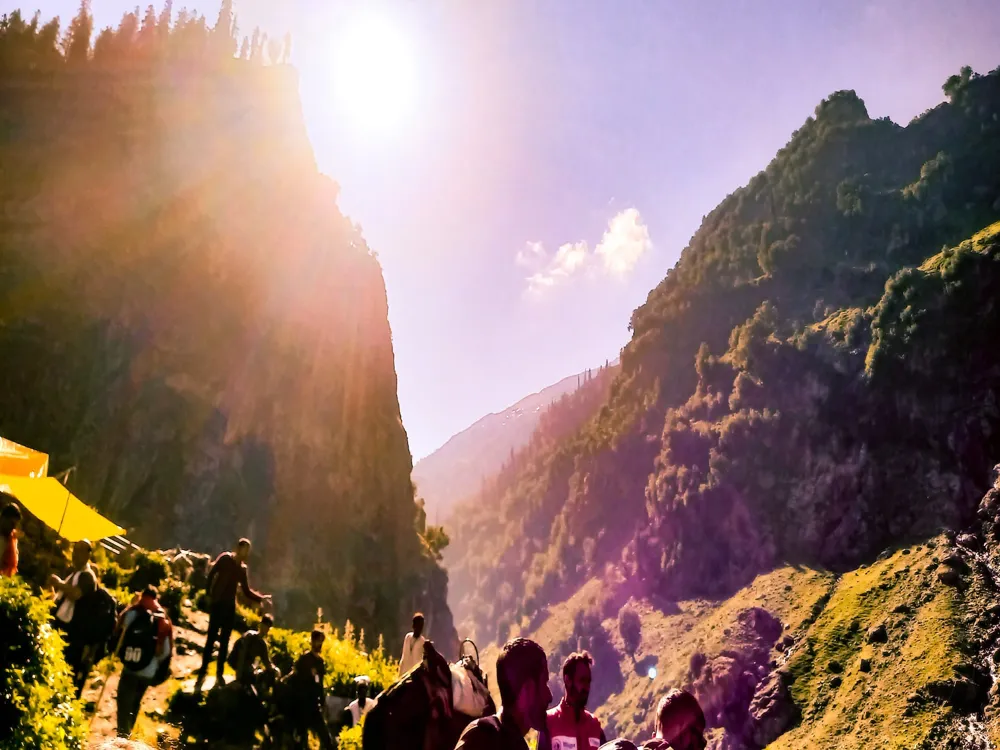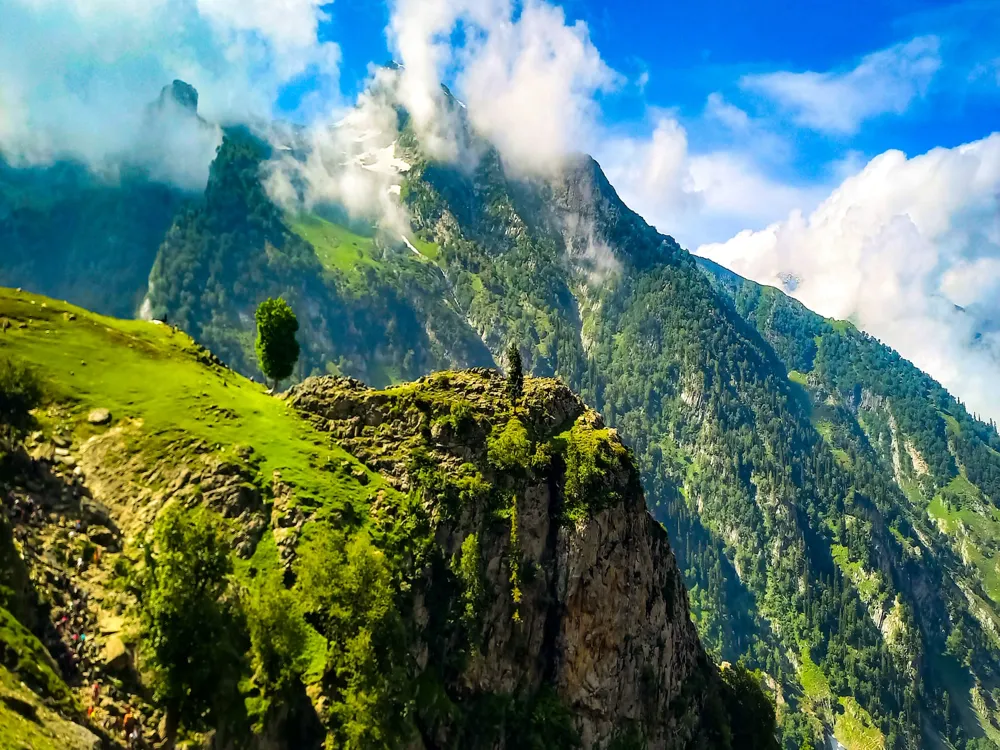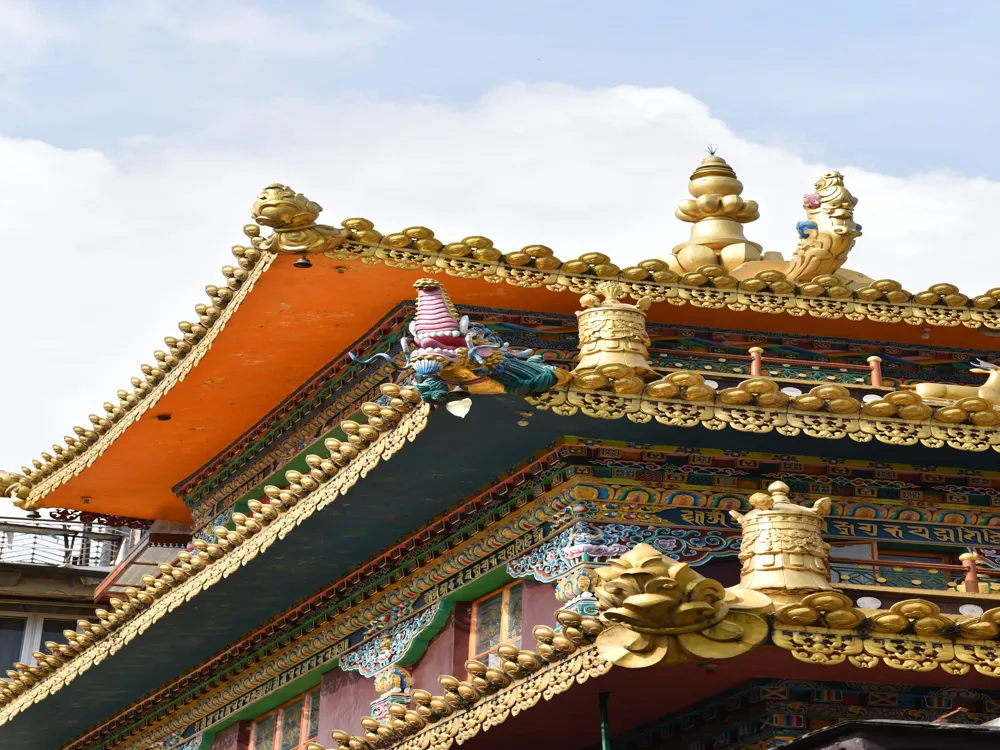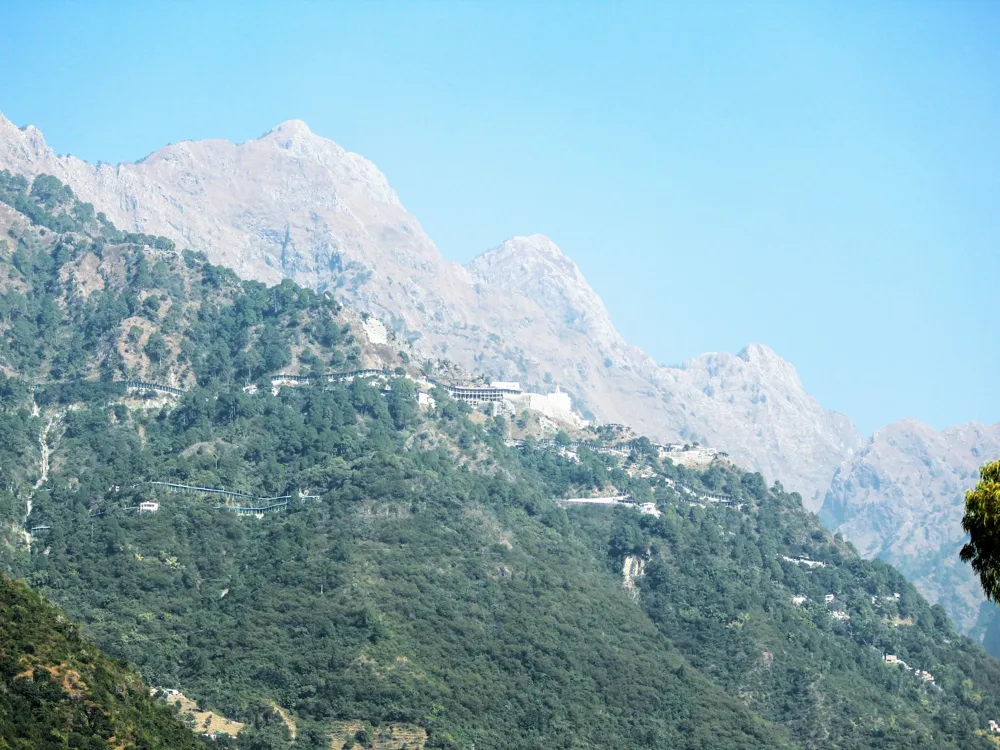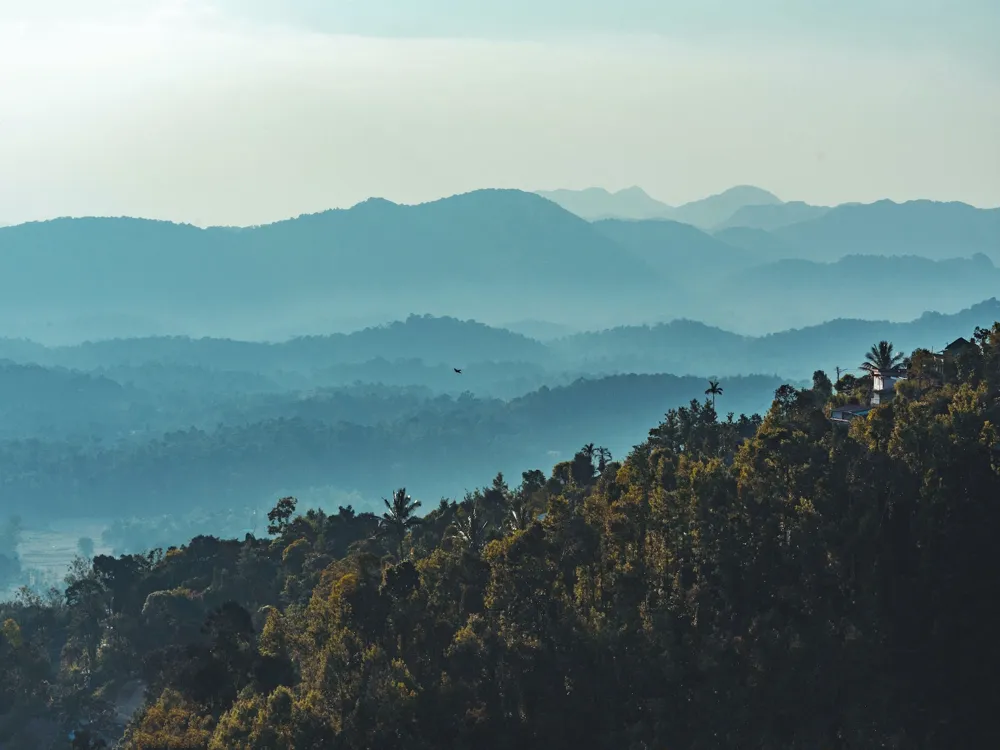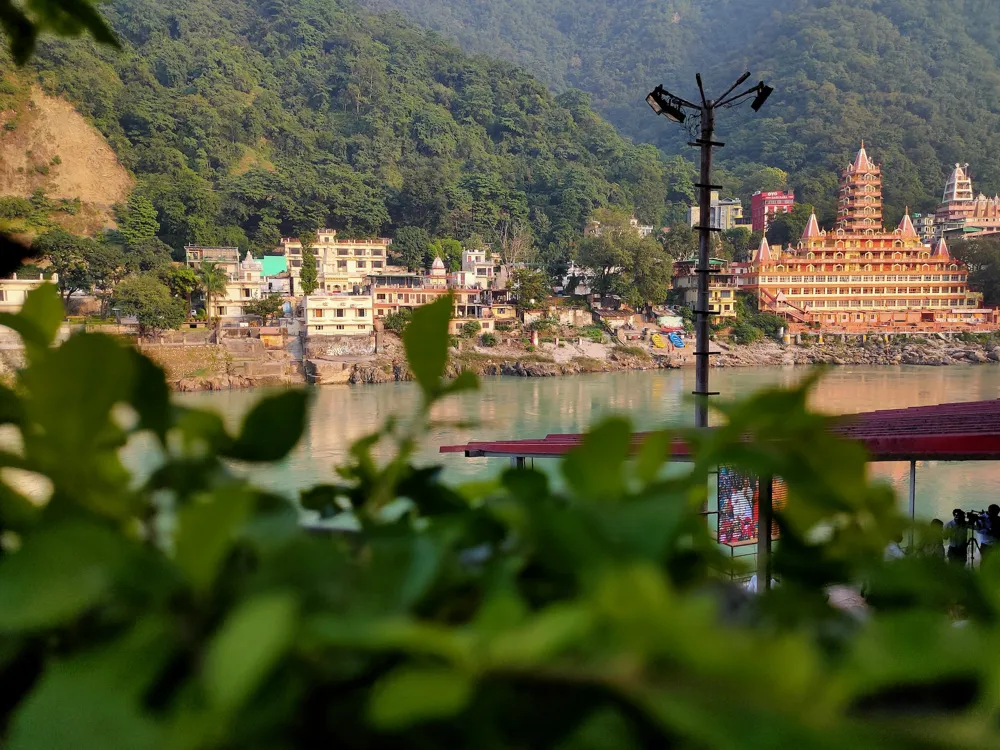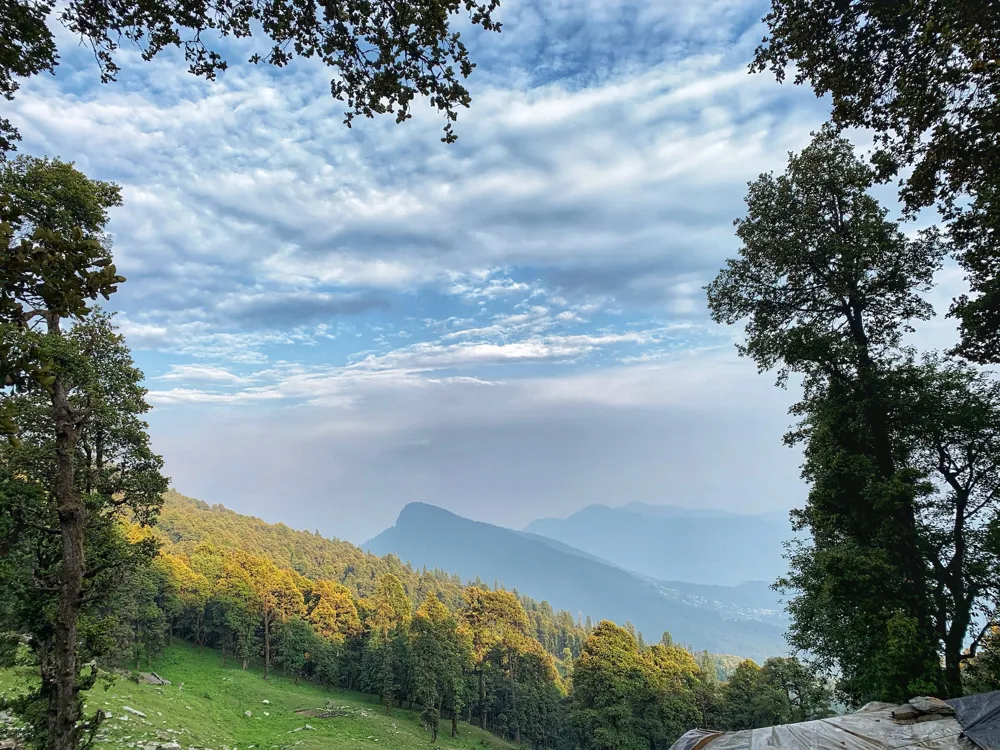Best Time To Visit Amarnath
Jammu & Kashmir India
4 out of 15 Places to visit in Jammu & Kashmir₹ 7,514 onwards View Packages
Get Customized PackagesThe Land of Diversity
Top Hotel Collections

Private Pool

Luxury Hotels

5-Star Hotels

Pet Friendly
What is the Best Time to Visit Amarnath?
Amarnath, a place of spiritual significance nestled in the serene Himalayas, beckons pilgrims and adventure seekers alike. Planning your visit to this sacred destination involves strategic timing to make the most of your experience. Let's delve into the best times to explore Amarnath, taking into account its diverse seasons.
More about the Best Time to Travel to Amarnath
Travel Peak Season in Amarnath
Amarnath welcomes the majority of its visitors during the peak season, spanning from June to August. This period aligns with the summer months when the weather is mild and conducive for travel. Pilgrims undertaking the Amarnath Yatra, an annual pilgrimage, often choose these months for their journey. The trails are bustling with devotees, creating an atmosphere of camaraderie and shared spirituality.
Travel Offseason in Amarnath
Contrastingly, the offseason, extending from November to February, unveils a different charm in Amarnath. The crowd thins and a tranquil ambiance envelops the region. While the Amarnath Yatra is closed during this time due to heavy snowfall, those seeking solitude and a unique snowy landscape can find solace in the winter months.
Amarnath Travel Packages
View All Packages For Amarnath
Amarnath Weather in Winter (November – February)
Amarnath Weather in November
November marks the onset of winter, painting Amarnath in a pristine white blanket. The temperatures drop, and the landscape transforms into a winter wonderland. Pilgrims visiting during this month should prepare for chilly weather and potential snowfall.
Amarnath Weather in December
December sees Amarnath draped in snow, creating a mesmerizing spectacle. The pilgrimage routes may be challenging due to snow accumulation, making it essential for visitors to be well-prepared for sub-zero temperatures.
Amarnath Weather in January
January brings the peak of winter, with temperatures reaching their lowest. Adventurous souls braving this season are rewarded with unparalleled views of snow-covered mountains and a serene ambiance.
Amarnath Weather in February
As winter begins to wane in February, the snow-laden landscapes offer a picturesque setting. Travelers during this time can enjoy the tranquility of Amarnath without the bustling crowds, making it an ideal period for introspection and spiritual contemplation.
Amarnath Weather in Summers (March to June)
Amarnath Weather in March
March signals the onset of the summer season, gradually melting the winter snow. Pilgrims visiting in March witness the awakening of nature, with flora starting to bloom amidst the lingering traces of snow.
Amarnath Weather in April
April unveils a vibrant panorama with the blossoming of various flowers. The weather becomes milder, creating comfortable conditions for both pilgrimage and exploration.
Amarnath Weather in May
May is an optimal month to visit Amarnath, offering pleasant weather and clear pathways for pilgrims. The landscape becomes a canvas of colors, enhancing the overall experience.
Amarnath Weather in June
During June, the summer season peaks, providing comfortable temperatures for pilgrims. The snow has largely melted, allowing for a smoother journey and a chance to relish the breathtaking scenery.
Amarnath Weather in Monsoon (July – October)
Amarnath Weather in July
As the monsoon sets in during July, Amarnath experiences occasional rainfall. Pilgrims need to be cautious of slippery trails, but the lush greenery that emerges enhances the visual appeal of the surroundings.
Amarnath Weather in August
August continues the monsoon season, with intermittent showers. Pilgrims should be prepared for wet conditions and, despite the rain, can appreciate the ethereal beauty of Amarnath in its rainy attire.
Amarnath Weather in September
September marks the transition from monsoon to autumn. The weather stabilizes, offering a comfortable environment for pilgrims and travelers. The landscapes are still adorned with the remnants of monsoon, creating a unique blend of greenery and autumn hues.
Amarnath Weather in October
As October arrives, the weather becomes crisp, and the landscapes take on an autumnal charm. This month serves as a bridge between the monsoon and winter seasons, providing a diverse and visually appealing experience for visitors.
In conclusion, choosing the best time to visit Amarnath depends on your preferences and tolerance for different weather conditions. Whether you seek the vibrant summer atmosphere, the serene winter solitude, or the transitional beauty of spring and autumn, Amarnath has something to offer throughout the year.
Places To Visit In Amarnath
Nearby Places Amarnath
Amarnath Photos
View All Photos For AmarnathBrowse Package Collections
Browse Hotel Collections
Faq
Q1: When is the best time to visit Amarnath?
A: The ideal time to visit Amarnath is during the summer months, from late June to early August. This period offers pleasant weather and ensures the Amarnath Yatra pilgrimage is open.
Q2: Why is summer considered the best time for the Amarnath Yatra?
A: Summer brings milder temperatures, making the pilgrimage more comfortable. The Amarnath cave, housing the naturally occurring ice Shiva Lingam, is accessible during this time, allowing devotees to experience the religious significance of the site.
Q3: Are there any specific months to avoid for visiting Amarnath?
A: It is advisable to avoid planning a visit during the winter months, from November to April, due to heavy snowfall, extremely cold temperatures, and the closure of the Amarnath Yatra route.
Q4: Can Amarnath be visited during the monsoon season?
A: The monsoon season, from July to September, may bring heavy rainfall and pose challenges for the pilgrimage. While the Yatra is open in July, it's essential to check weather conditions and plan accordingly.
Q5: Are there any festivals or events during the best time to visit Amarnath?
A: The annual Amarnath Yatra itself is a significant event, attracting pilgrims from across the world. The journey typically coincides with the Hindu holy month of Shravan, adding a spiritual and festive atmosphere.

